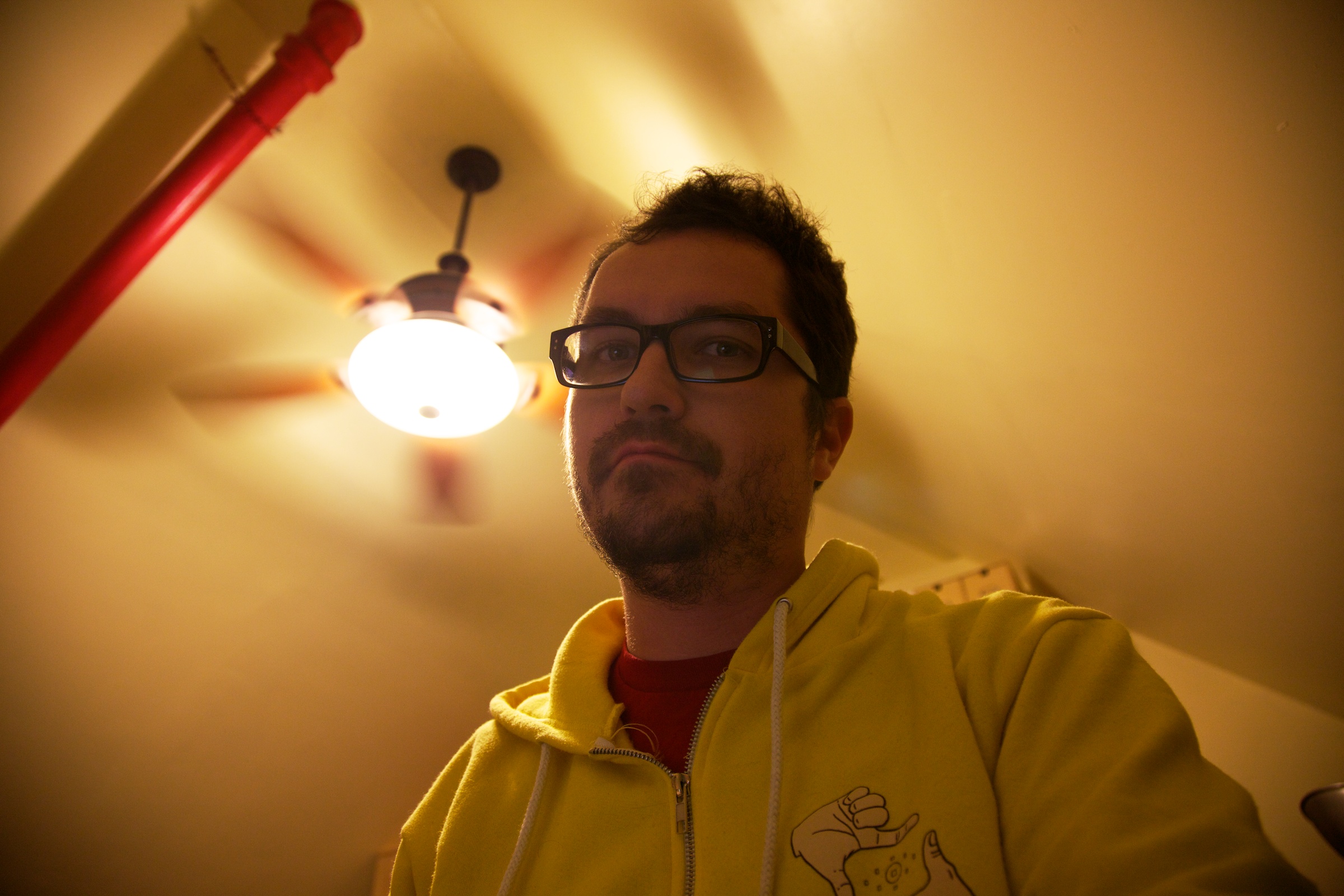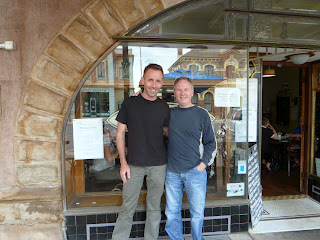Why is it that so many gay people, myself included, have found it so immensely difficult to come out to parents? I did it over twenty years ago, but boy oh boy, I certainly put it off for a very long time - wanting to, struggling with the desire, but then backing away from it only to have it return relentlessly until I actually did speak to them and tell them the truth about myself. A massive struggle! In BGBC I did discuss this topic at length and talked about the fear of rejection as being the fundamental reason for the dilemma. And while I do believe that fear of rejection is the crux of the matter, I think now there is perhaps another way of characterising this difficulty. This alternate characterisation is strongly associated with the fear of rejection and I think is actually a part of it. It is this concept of disappointment.
 |
| Source |
I feel dreadfully for this poor mum. She and so many others see being gay as a second-best, a silver medal, a downgrade from the optimal. Her disappointment is actually a form of grief. She is struggling with the loss of an image - the image of the trajectory she always believed her son would take. The sense of disappointment is palpable, but she, like the rest of us to some extent, has bought into believing a fairy tale.
The fairy tale goes like this. You get born. You go to school, you live in a loving family, you pass all your exams, you go to university or get a good job, or both, you meet your opposite sex partner, you fall in love, you get married, you buy a house, you have kids of your own, and finally, you live happily together forever. This is the trajectory that most parents just naturally believe their kids will take. It's all very linear. A moves on to B then on to C, then onwards to the end, each milestone all very 'normal' and even over the course of a lifetime. From the point of view of queer discourse, we might call this a heteronormative myth, that is, a fairy tale-like belief based on the notion that heterosexuality is the assumed norm for everybody and that a nice neat linear trajectory along the lines I just listed will ensue.
But not everyone lives this myth and many people have to deal with all manner of meanderings, twists and turns off this straight and narrow path. Some of the more common ones I hear about in my Consulting Room on a daily basis are: miscarriage or still-birth, developmental disorders, learning difficulties, illness, disease, accidents, misadventure, confusion as to direction, failure at education, tyrannical bosses, harassing colleagues, dislocation, unemployment, teenage pregnancies, affairs, divorce, redundancy and dementia to name but a few.
Of the hundreds of possible twists, one such meandering is when a child turns out to be gay. From that point on, the rest of the fairy tale stops dead and all the dreams and expectations for that child according to the assumed 'normal' trajectory evaporate in the disclosure, "Mum and Dad, I need to tell you something." When you are brought up your whole life to believe in the fairy tale and see other people purportedly living it, then you just come to expect that it will be true for you too.
So what's wrong with the fairy tale? Nothing in itself. Some people do in fact manage it, at least on the surface. But it does tend to corral our thinking and expectations into a very narrow view of how our lives and our kids' lives will turn out. But as any adult knows, life is never this black and white, never this clean-cut and neat, so when the kids deviate from this well-imagined path, there can be a sense of disappointment.
 |
| Source |
I think one of the principal foci of parental disappointment is the idea that the gay son or daughter will not have children of their own. While this is understandable from a heteronormative point of view, it is not the point of view of gay people themselves generally speaking. In fact, some gay people do have children, either from previous relationships or as a step-parent, or with a gay partner through IVF or surrogacy. However, most gay people don’t have children and manage to lead happy lives without them, much in the manner of straight people who do not have children.
This is a very delicate point for people get extremely tetchy when you start talking about children, but I think it needs to be made if there is to be societal change around our topic in question. While the human race depends on sexual reproduction for the perpetuation of our species, and having children is an absolute miracle, having and raising children in the 21st century is not necessarily the only way to have a good life. And at the risk of offending every straight parent reading this, nor is it necessarily the pinnacle of human relationships. While having children is a beautiful act of creation, people can have perfectly fulfilled and happy lives without them. And let's be honest, children do not always bring happiness and joy to their parents nor are they necessarily always an integral part of the family unit. I regularly see people of all ages who are no longer in contact with parents or children for one reason or another and almost every day, I see empty nesters whose children have grown up and moved on and have very little to do with them. I only say this to suggest that having children is not for everybody and that despite its common occurrence, should not necessarily be the criterion by which we judge whether or not someone is going to be happy and lead a fulfilling life.
This is an important point because I think it is integral to the disappointment model of gay sexuality we are are examining. So, the next time you hear someone suggest that being gay is a disappointment, take the time to ask what it is that the speaker really means, what it is that is actually disappointing. For me now, the whole disappointment view is wrong and harmful and causes unnecessary suffering to all, both gay and straight. So a declaration: Being gay is no more disappointing than being straight. Let me elucidate.
 |
| Source |
As far as a gay trajectory goes, there is no real reason why any gay person would not be able to achieve such a life. Yes, there are yobbos out there who in a drunken state might pick on us, but they pick on others as well. No-one is really immune from such sociopathic behaviour. Often it's about being in the wrong place at the wrong time unfortunately. But aside from this kind of thing, which we gays for the most part are pretty good at avoiding, gay people can and do flourish. Not just exist. Flourish!
We have a great fun. We value our friends in a special way. We can establish incredibly loving partnerships that can be kept alive and thriving. We can work in fulfilling jobs and careers, get ourselves well-educated, keep fit, look after our homes, become involved in the community, dance and enjoy ourselves. We adore our music. We can even involve ourselves in personal development to grow spiritually if we are so inclined. We can travel the world to see its marvels and we can act out our lives in compassionate ways by helping others. We build a camaraderie that is second to none and in a country like Australia, we can feel comfortable in our gay skin and confident of being able to flourish. And to top it all off, we put an emphasis on our sex lives that can be rewarding and enriching. This has all the hallmarks of a successful life, a life lived to the full, a life of substance. Such a life is the very antithesis of the disappointment model of being gay. “Oh those poor gay things, will they ever be happy like we straight people are?” And to that the answer is a resounding YES. Our being gay does not preclude us from living well.
There is nothing disappointing about being gay, or having a gay son or daughter, or for that matter, having a gay father or mother. Disappointment doesn’t come into it. When expecting parents are asked which sex they would like, you often hear the formulaic answer, “we don’t care, as long as it’s got ten fingers and ten toes and is healthy, that’s all that matters.” Why not take that thought one extra step. “We don’t care whether he’s straight or gay, as long as he’s happy, has opportunities and gets to live out his life in a meaningful way being loved and valued.”
 |
| Source |
So parents and friends, if your loved one tells you that he or she is gay, rejoice with them and don't be disappointed. They've just begun a new adventure.











.jpg)







